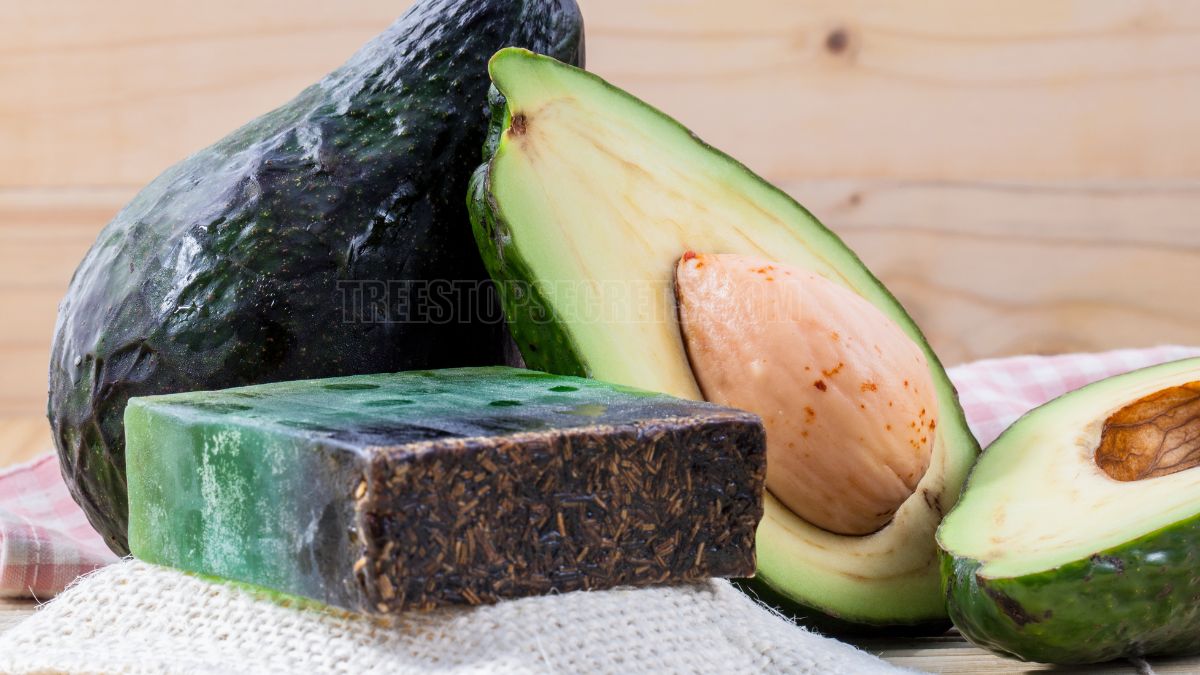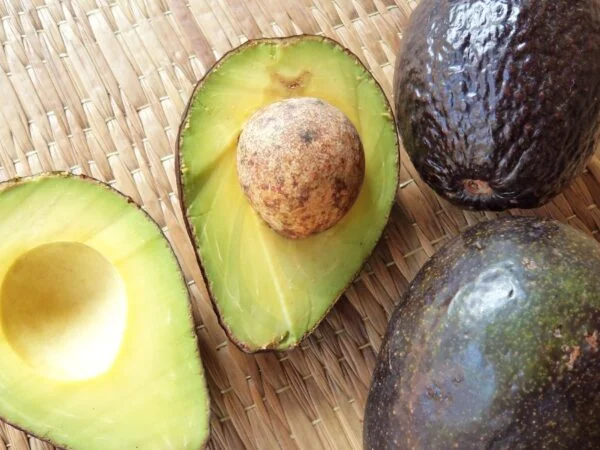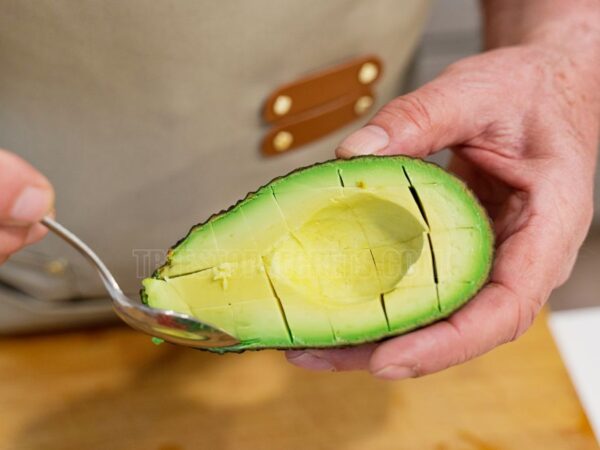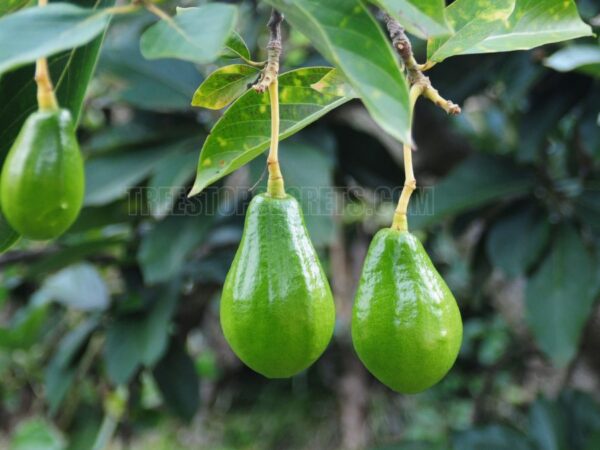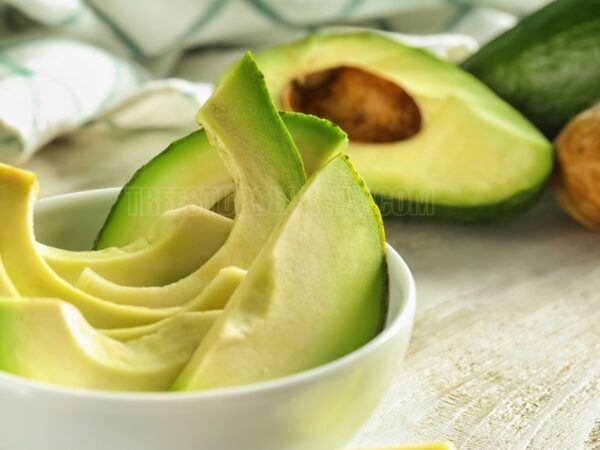Avocados have become a staple in many diets, but their high price tag often raises eyebrows. If you've ever wondered why avocados cost so much, you're not alone. This blog post reveals the primary reasons behind the hefty price of these creamy fruits. From production challenges to market demand, discover what factors contribute to the cost of avocados and why they might be more expensive than you expected.
Avocados are expensive primarily due to their labor-intensive cultivation and the high demand for them. These fruits require specific growing conditions and careful handling, which increases production costs. Additionally, weather conditions and supply chain issues can further drive up prices, making avocados a costly item at the grocery store.
Curious about why avocados cost more than you might expect? Our in-depth article breaks down the key reasons behind their high price. Whether you're a fan of avocado toast or guacamole, understanding these factors can give you a new perspective on your grocery bill. Read on to uncover the truth behind the cost!
Avocado Price Surge
What’s Pushing Avocado Prices Up?
Avocado prices have seriously hit the roof recently. Imagine this: a 20-pound box of avocados from Michoacán, Mexico, used to set you back $21. Now? It's a whopping $38. That's an eye-popping 81% hike! This is the steepest price tag we’ve seen since folks started keeping track back in 1998.
A bunch of reasons are behind this price explosion:
| Factor | What's Going On |
|---|---|
| Going Crazy for Avocados | Avocado love is real, folks. In the last 20 years, each person in the U.S. gobbles up 443% more avocados. In '95, it was 1.6 pounds per person; by 2015, it hit 7.1 pounds per person. Everyone’s making avocado toast and guac these days. |
| Mainly from Mexico | Over 80% of the avocados we munch on come from Mexico. Local farmers in the U.S. can’t keep pace with our crazy demand. |
| Supply Snags | Some hiccups in the supply chain can choke the flow, which means prices shoot up as everyone scrambles for fewer avocados. |
What’s This Mean for Us Guac Lovers?
If you’re like me and live for avocados, these price jumps are a real bummer. Here’s how it’s messing with my avocado game:
| Consumer Woes | What’s Happening |
|---|---|
| Cutting Down | With prices climbing, I’m thinking twice about picking up avocados at the store. Might start looking for cheaper alternatives. |
| Menu Switch-ups | Restaurants are feeling the pinch too. Don't be surprised if that avo-toast costs more or the guacamole portion shrinks. |
| Budget Battles | If you’re watching your wallet, squeezing in your favorite avocado dish becomes pretty tricky with these steep prices. |
So there you have it. The soaring price of avocados is a clear sign of how fragile the balance is between how much we want and how much we can get. It’s changing the way I enjoy this fantastic fruit, and I bet it’s shaking up your avocado plans too.
The Global Avocado Craze
Why Everyone Loves Avocados
Avocados have taken the world by storm—especially in the U.S. Just think about it: folks here have upped their avocado game by a whopping 443% over the past twenty years. Back in '95, people ate a measly 1.6 pounds each. Fast forward to 2015, and boom, 7.1 pounds per person! You can thank Michigan State University for these eye-popping stats.
| Year | Avocado Consumption (per person in pounds) |
|---|---|
| 1995 | 1.6 |
| 2000 | 3.0 |
| 2010 | 5.8 |
| 2015 | 7.1 |
With everyone and their grandma now munching on avocados daily, it’s no surprise prices have shot through the roof. The love affair with this green gem is fueled by its health benefits, prompting avocado farmers to hustle hard to keep up with our cravings.
Who’s Sending Us All These Avocados?
Wondering where all these avocados come from? Yeah, it’s not just the local farmers. The U.S. relies heavily on imports, especially from Mexico. In fact, over 80% of the avocados you enjoy are imported, with Mexico being the MVP supplier (Michigan State University Extension).
Mexico’s foothold in the U.S. avocado market is rock solid, and it’s only growing. By 2022, 90% of U.S. avocado imports hailed from Mexico. That year alone, 1,133,763 metric tons of avocados were imported, worth a staggering $3.27 billion. Yes, you read that right. Despite a slight dip in volume, the value soared, thanks to the spiking prices (ProducePay).
Here’s a snapshot of the U.S. avocado import scene:
| Year | Import Volume (metric tons) | Value (in billions) |
|---|---|---|
| 2020 | 1,138,000 | 3.19 |
| 2021 | 1,145,000 | 3.24 |
| 2022 | 1,133,763 | 3.27 |
And let's not forget, Mexico's been sending the U.S. roughly 2.25 billion pounds of avocados yearly from 2019 to 2021. Compare that to the tiny 55 million pounds back in the day.
So, as you slather that avocado toast, remember: behind every creamy bite is a giant game of supply and demand. And that's why these green beauties often come with a hefty price tag.
Why Are Avocados So Expensive?
Ever wondered why you sometimes need to fork out a pretty penny for that delicious avocado toast? Here's the deal with avocado prices: it's all about supply and demand, and Mother Nature's unpredictable quirks.
Supply and Demand – The Love-Hate Relationship
So, what's the deal with supply? Basically, everyone's gone avocado crazy, but the supply can't keep up. Over 80% of the avocados you munch on are shipped in from Mexico because U.S. farmers just can't meet the craze (Michigan State University Extension).
In a decade, U.S. avocado imports have skyrocketed by 41%, thanks to our obsession with guacamole (Michigan State University Extension).
Check out these stats:
| Years | Avocado Imports (in billion pounds) |
|---|---|
| 2001–2003 | 0.055 |
| 2019–2021 | 2.25 |
Now think about this: imported avocados make up 90% of what we chow down on, up from 40% in the early '00s (USDA). This heavy reliance on imports means prices shoot up, especially when our neighbors south of the border have a bad crop.
Nature's Interference – The Good, the Bad, and the Ugly
Mother Nature isn't always kind to avocado farmers. Droughts, changing weather, and all that jazz impact how many avocados make it to your grocery store. More farming often means tearing down forests, adding another layer to the mess.
Take Mexico, for example. They supply over 90% of our avocados, but this comes with environmental baggage. More farming there can mean less forest – not great for sustainability. So, while we munch away, the environmental cost of farming hangs over the market, influencing how many avocados are available and how much they cost.
When you get down to it, the ups and downs of supply and nature's mood swings drive up prices. So next time you grumble about the cost of avocados, remember where they come from and what it takes to get them to your plate.
US Avocado Imports
Avocados and Mexico: A Love Story
Did you know most of the avocados you munch on come from Mexico? Yep, over 80 percent of them aren’t homegrown. Why? Because American farms just can’t keep up (Michigan State University Extension). Mexico’s the go-to supplier, handling more than 90 percent of our imports (Rabobank). Our dependency on Mexican avocados is real.
The surge in imported avocados is mind-blowing. They make up a whooping 90 percent of the avocados in U.S. stores, skyrocketing from 40 percent back in the early 2000s (USDA). So, basically, our avocado toast obsession has become a crutch on foreign growers.
Here's a look at how much we’ve been importing:
| Year | Avocado Imports (Billion Pounds) |
|---|---|
| 2001–2003 | 0.055 |
| 2019–2021 | 2.25 |
| 2020/21 | 2.675 |
What’s Next for Our Avocado Cravings?
Looking ahead, it's clear we're not slowing down on this avocado train. The U.S. is set to remain the top importer worldwide, with Mexico still holding the reins to our supply (USDA). As imports climb, I’m curious about how prices and availability will play out.
We hit a record during the 2020/21 marketing year with 2.675 billion pounds of avocados making their way to us (USDA). Given the demand, it'll be entertaining to see how domestic and international suppliers handle our endless cravings. Guess we better keep an eye on those grocery store prices!
The Real Cost of Avocado Production
Why do avocados cost so much? Spoiler alert: it's not just the demand. Their production brings baggage—mainly deforestation and a hefty carbon footprint. Let’s dig deeper.
Chopping Down Forests for Avocado Farms
Take Michoacán, for example. This place has seen a lot of its natural forest disappear, swapped out for avocado farms. We're talking about consequences like:
- Wildlife losing homes
- Land turning useless
- And even some earth-shaking issues because of all the water sucked out from underground
Speaking of water, avocado farming in Michoacán gulps down 9.5 billion liters daily. Yeah, you read that right. If that doesn’t paint a clear picture, imagine 196,000 football fields worth of land turned into avocado paradise. That’s a whole lot of space. And one hectare of avocado trees needs 1.6 times more water than a forest with 677 trees per hectare.
| Issue | What Happens |
|---|---|
| Forest Destruction | Forests get cleared out |
| Fewer Animals and Plants | Wildlife and plant species go missing |
| Thirsty Crops | 9.5 billion liters of water are used each day |
| Poor Soil | Soil quality drops, hurting ecosystems |
Avocados: A Carbon Guzzler
Now, let’s talk carbon. According to Carbon Footprint Ltd, avocados aren’t exactly eco-friendly. A small pack of two avocados has an emissions footprint of 846.36g CO2. Compare that to one kilogram of bananas (480g CO2) or a large cappuccino with regular milk (235g CO2), and you see avocados are the big bad wolf of carbon emissions.
| Item | Carbon Emissions (g CO2) |
|---|---|
| 2 Avocados | 846.36 |
| 1 kg Bananas | 480 |
| Large Cappuccino (Regular Milk) | 235 |
So, next time you're paying top dollar for those green gems, remember: It’s not just about the price. There’s a world of hidden costs wrapped up in their journey from the farm to your table. Every bite counts!
Avocado Market Forecast
What’s Cooking in the Avocado Industry?
Watching the avocado industry evolve is like seeing your favorite underdog team rise to champions. By 2030, global avocado production is expected to hit a whopping 12 million tonnes, triple what it was a decade ago. Latin America, especially Mexico, Peru, and Colombia, will be leading the charge. While there are bumps in the road, the future looks bright with a focus on being greener and more efficient in how we grow these creamy delights.
Here’s a quick glance at how different countries are shaping up:
| Country | Expected Growth (%) | Notes |
|---|---|---|
| Mexico | Slow growth | Still the top dog in production |
| Peru | Double-digit growth | Steady climb in exports to Europe |
| Colombia | Double-digit growth | New player making waves in exports |
| Kenya | Double-digit growth | A rising star on the global stage |
| Morocco | Double-digit growth | Carving out its own niche |
| Tanzania | Double-digit growth | Big leaps in production efficiency |
What’s Trending?
Avocados are poised to become the second most popular tropical fruit globally by 2030, pushing pineapples and mangoes down the leaderboard. In 2022, Europe imported avocados worth €1.8 billion from developing countries, showing just how hungry folks are for this nutritious fruit.
In May, the average wholesale price of avocados in the European Union dropped by 11% to €280 ($298) per 100 kg. This price dip came right after Peru cranked up its exports by 106%, totaling 40,300 metric tons in April. Such swings in import volumes can send ripples through market prices, making the avocado industry anything but boring.
So, what does this all mean? With production ramping up, people munching on more avocados, and prices bouncing around, the future is exciting and unpredictable for the avocado market. These bits of info not only explain why your avocado toast might cost more but also hint at some juicy opportunities ahead.
Why Are Avocados So Expensive? Understanding the Factors
In conclusion, the high price of avocados is influenced by several critical factors including their specific growing needs, labor-intensive harvesting process, and fluctuating supply. By understanding these elements, you can better appreciate why avocados command a premium in the market. Next time you enjoy an avocado, you'll know exactly what goes into making it a pricey yet valued addition to your meals.
FAQs about "Why Are Avocados So Expensive?"
Q: Why are avocados so expensive?
A: Avocados are costly due to their labor-intensive cultivation, specific growing requirements, and high demand. Production costs are further increased by weather conditions and supply chain issues.
Q: How does weather affect avocado prices?
A: Extreme weather conditions, such as droughts or storms, can damage avocado crops, reducing supply and driving up prices. These conditions can also affect the quality of the fruit, impacting its market value.
Q: What role does supply chain play in avocado prices?
A: The supply chain for avocados involves multiple stages, including harvesting, transportation, and storage. Disruptions or inefficiencies in any of these stages can lead to increased costs and higher prices for consumers.
Q: How does demand influence avocado prices?
A: The rising popularity of avocados, especially in health-conscious diets, increases demand. When demand exceeds supply, prices naturally rise to balance the market.
Q: Are avocados worth the price?
A: Despite their cost, avocados offer nutritional benefits and versatility, making them a valuable addition to many diets. Their high price reflects the complex factors involved in their production and distribution.
Image Source: Paid image from CANVA

